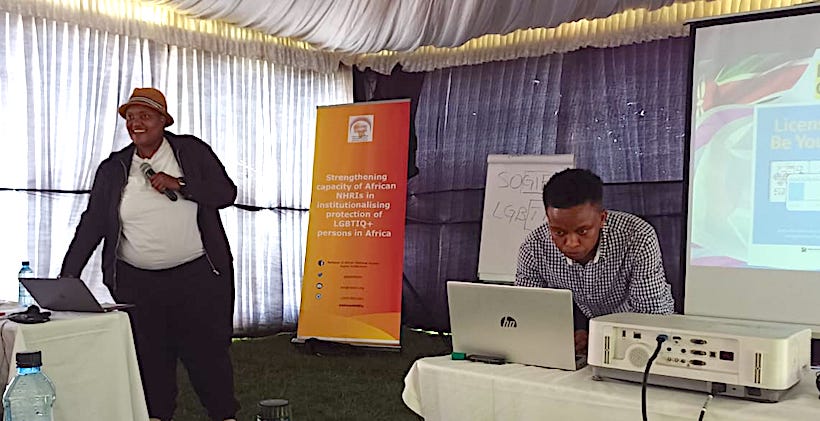Iranti was invited to the Regional High Level Convening and presented on the lived experiences of queer persons and communities on the African continent, as well as the advocacy and litigation strategies being explored to further LGBTIQ rights and protections in the region.
The convening was hosted by the Network of African National Human Rights Institution (NANHRI) in Kenya, which saw representatives from organisations and human rights defenders in attendance. NANHRI serves as an important resource for LGBTIQ rights in Africa because it allows these institutions to work together to address issues that affect LGBTIQ people in their countries.
The last few years have seen progress in the fight for SOGIE rights across the world. We are seeing a change in attitude towards Trans, Intersex and non-binary people. However, for equality in policies and legislation, trans and intersex continue people face severe discrimination.
In many African countries, there are no specific laws that protect members of the LGBTQIA+ community from discrimination or violence. Most do not even have a law against discrimination based on sexual orientation or gender identity. And where such laws exist, they often do not offer adequate protections because they do not include all forms of discrimination or all identities within the LGBTQIA+ community.
In addition to lacking strong legal protections, there are also issues with stigma and secondary victimization that affect members of the LGBTQIA+ community in many African countries. This includes sigma and prejudice within families, cultures, and faith groups.

Trans and intersex people are often left out of the picture when it comes to equality and law reform. Legal Gender recognition is one of the key areas of focus for trans and intersex people. Many African countries still continue to criminalise trans people and medical institutions are encouraged to perform gentile mutilation on intersex-born children.
In Southern Africa, Iranti has been doing ongoing work to improve these protections trans and intersex people and communities, with a particular focus on high level advocacy interventions. The future litigation is focussed on:
- Legal gender recognition that is based on self-determination
Banning of all conversion practices - Banning intersex genital mutilation and banning unnecessary medical interventions
- Condemning and criminalisation of intersex infanticide
Decrimalisation of LGBTIQ persons and identities - LGBTI inclusion and anti-bullying policies and laws in schools
As a lesbian-, trans-, and intersex-focussed organisation, Iranti will continue to engage international human rights mechanisms and resources to make dignity, equality and freedom accessible to all our community members across the African continent.
